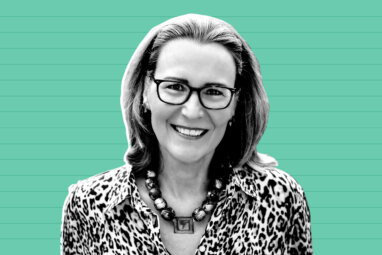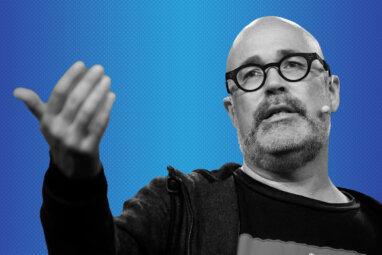Leading Into the Future
As our world and the nature of work fundamentally changes, leaders must consider necessary new skills and accompanying mindset shifts.
Topics
Future of Leadership in the Digital Economy
In Collaboration With
CognizantChanges in the world and workplace mean a shift from traditional leadership to one led by digital transformations. In order to execute effective leadership in a digital world, leaders must embrace key changes rooted in factors like technology, demographics, and cultural norms while retaining the enduring and contextual characteristics of leadership. This may necessitate a mindset shift moving forward.
Will I be ready to lead in 2025?
I’m wondering how many of us are asking this question of ourselves. After all, 2025 is less than a decade from now, and if you are like me, you have probably invested a good deal of time reflecting on your own experiences and what others have taught you about the art and craft of leadership and what it means to be an effective leader. Those reflections, experiences, and observations have served us reasonably well as we’ve learned how to lead in today’s world. But what about leading in tomorrow’s world? What will it take to be a great leader five years from now, let alone 10? As I’ve pondered this question, I think, surely, things won’t change so dramatically that I won’t be able to keep up. Fundamentally, leadership is leadership, right? In the end, it’s all about crafting a vision and strategy, motivating people to execute that strategy for customers, and delivering superior value for investors. End of story.
But is it? Consider the case of RBC, the Canadian financial services giant. Over the past few years, it has been engaged in a comprehensive digital transformation of how it provides services to its clients and customers. Only recently, however, did RBC’s leadership come to terms with the notion that to fully execute its digital transformation, it needed leaders who fully embrace and understand how to compete and lead in the new economy. As such, the company has completely transformed its leadership model and its talent strategy. Those who are excited about and capable of embracing the future will comprise RBC’s future leadership ranks.
Or, consider the observations Alan Mulally, legendary CEO of Ford and Boeing Commercial Airplanes, shared with me about his own leadership style. Earlier in his career, Mulally’s view of an effective leader was someone who was in charge, who fully grasped the challenges facing the organization, and who was clear in providing direction and guidance when needed.






Comments (7)
Subramaiam Ponnusamy
Himanshu Sharma
George Murage
Allison Ryder
john decker
Terry Bennett
Isabella Brancher